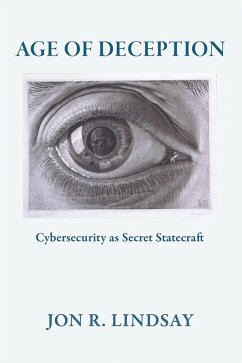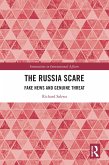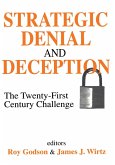At the heart of cybersecurity lies a paradox: Cooperation makes conflict possible. In Age of Deception, Jon R. Lindsay shows that widespread trust in cyberspace enables espionage and subversion. While such acts of secret statecraft have long been part of global politics, digital systems have dramatically expanded their scope and scale. Yet success in secret statecraft hinges less on sophisticated technology than on political context.
To make sense of this, Lindsay offers a general theory of intelligence performance-the analogue to military performance in battle-that explains why spies and hackers alike depend on clandestine organizations and vulnerable institutions. Through cases spanning codebreaking at Bletchley Park during WWII to the weaponization of pagers by Israel in 2024, he traces both continuity and change in secret statecraft. Along the way, he explains why popular assumptions about cyber warfare are profoundly misleading. Offense does not simply dominate defense, for example, because the same digital complexity that expands opportunities for deception also creates potential for self-deception and counterdeception.
Provocative and persuasive, Age of Deception offers crucial insights into the future of secret statecraft in cyberspace and beyond.
To make sense of this, Lindsay offers a general theory of intelligence performance-the analogue to military performance in battle-that explains why spies and hackers alike depend on clandestine organizations and vulnerable institutions. Through cases spanning codebreaking at Bletchley Park during WWII to the weaponization of pagers by Israel in 2024, he traces both continuity and change in secret statecraft. Along the way, he explains why popular assumptions about cyber warfare are profoundly misleading. Offense does not simply dominate defense, for example, because the same digital complexity that expands opportunities for deception also creates potential for self-deception and counterdeception.
Provocative and persuasive, Age of Deception offers crucial insights into the future of secret statecraft in cyberspace and beyond.
Dieser Download kann aus rechtlichen Gründen nur mit Rechnungsadresse in A, D ausgeliefert werden.









